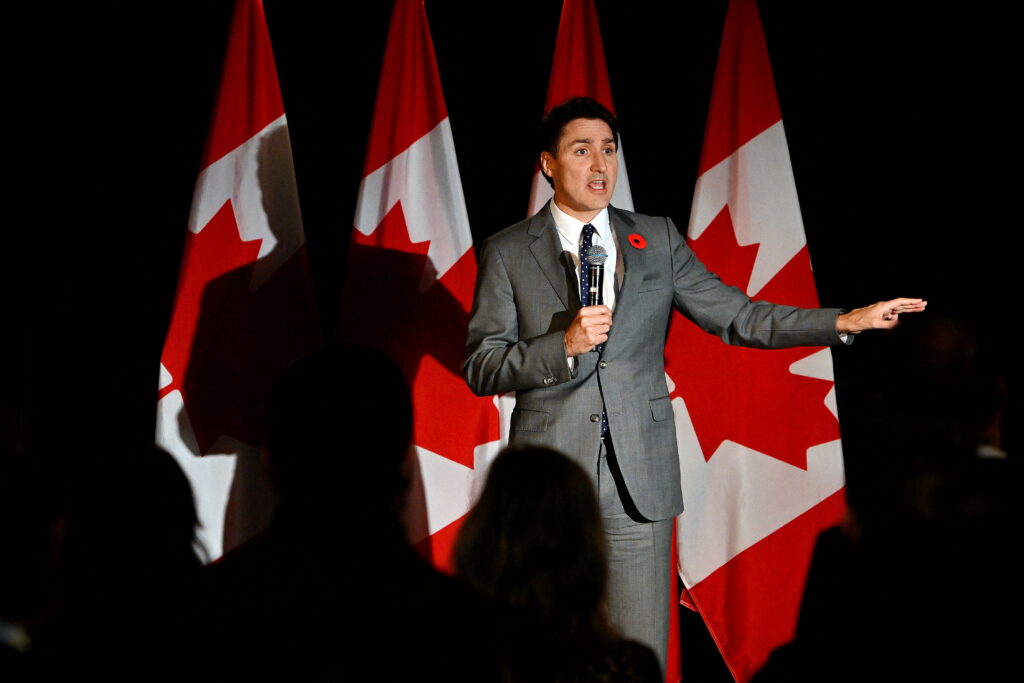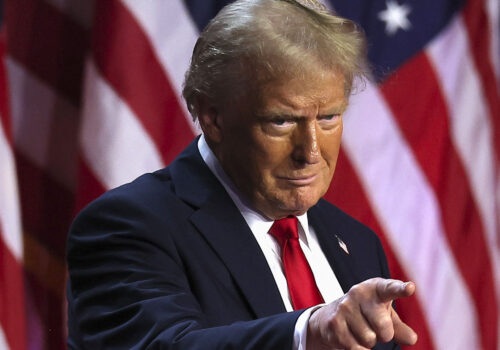Canadian Prime Minister Justin Trudeau’s announcement on Monday that he would resign launched immediate speculation about who will replace him as prime minister and leader of the Liberal Party. Trudeau asked the governor general to prorogue, or suspend, the House of Commons, until March 24, during which time the Liberal Party will select a new leader. This means Canada will soon have a new prime minister who will need to tackle a host of issues, including the country’s most important foreign relationship—that with the United States, which will be led by President-elect Donald Trump.
Regardless of who the next prime minister is, they will face an election sometime on or before October 20. Currently, the opposition Conservative Party of Canada, led by Pierre Poilievre, has a commanding lead in the polls. But between March and election day, the next prime minister must work closely with the incoming Trump administration on several critical issues. Defense spending, trade and economic security, and energy and critical minerals are three areas of cooperation that the next Canadian prime minister should focus on with the Trump administration.
Increase defense spending
First, the next prime minister should demonstrate their commitment to the shared defense of North America and NATO by calling for an increase and acceleration in defense spending. In July, Trudeau pledged that Canada would meet the 2 percent of gross domestic product (GDP) spending target by 2032. (According to NATO figures, Canada spent around 1.37 percent of its GDP on defense last year.) With Trump now calling for Alliance members to spend 3 percent of GDP on defense, raising the goal higher than 2 percent and achieving it sooner than 2032 could win favor in Washington and demonstrate Canada’s commitment to North America’s defense and NATO at a time when the world is facing a variety of threats.
One way that Canada can increase its spending is by investing in joint capabilities alongside the United States and other allies. For example, Canada has indicated an interest in joining Pillar Two of AUKUS, which focuses on advancing joint military capabilities between the partnership’s members, the United States, the United Kingdom, and Australia. Doing so would be a win-win for all countries involved. Ottawa would be able to increase its defense spending, putting it closer to its target, and the members of AUKUS would be able to leverage Canada’s expertise in cyber and artificial intelligence, as well as its strategic location in the Arctic and vast resources of critical minerals. Joining Pillar Two of AUKUS would also further bring Canada and three of its partners in the Five Eyes intelligence-sharing alliance closer in countering the strategic challenge posed by China in the Indo-Pacific, a threat recognized in Canada’s Indo-Pacific Strategy.
Focus on trade and economic security
Second, Canada’s next leader should seek to work closely with the Trump administration on trade and economic security. Though Trump’s threat of 25 percent tariffs looms large, there is still the potential for Ottawa and Washington to pursue closer economic ties.
Both Canada and the United States recognize the economic threat posed by China. Canada launched a 100 percent tariff on Chinese electric vehicles earlier this year, matching the United States. Similarly, both Canada and the United States share a concern that Mexico is being used as a backdoor for China to import cheaper goods into North America. Yet, despite the close agreement and coordination between the two nations, trade disputes are still prevalent. Over the summer, Canada instituted a digital service tax that impacts large firms, including US companies, with a Canadian user base, which some US politicians see as discriminating against US businesses. In response to the tax, the United States requested a dispute settlement under the United States-Mexico-Canada Agreement (USMCA). Working to iron out these disputes, especially ahead of the USMCA’s first scheduled review in 2026, can help ensure stronger North American trade and economic security ties.
Leverage energy and critical minerals
Finally, Canada’s next government should continue to leverage its vast natural resources to pursue closer ties with the United States. Trump has called for the United States to achieve “energy dominance,” and Canada can offer itself as a willing partner in this mission. Canada and the United States are already close partners in the energy trade, and in 2023 two-way trade of oil, natural gas, uranium, and electricity reached a record value of $156 billion. The next Canadian prime minister would be smart to position Ottawa not as an obstacle to ensuring US energy security, but as a close partner in achieving this goal.
The next prime minister should also continue to welcome US investment in Canadian critical minerals. Under the United States’s Defense Production Act Title III program, Canada, the United States, and Australia, are classified as domestic sources of production, allowing for the Department of Defense to invest in Canadian critical minerals. To date, the Department of Defense has made six investments in Canadian companies, including $15.8 million in December 2024 to develop a tungsten mine in Canada’s Yukon Territory. (Tungsten is used in the production of military-grade steel, aerospace components, vehicle armor, and munitions.) Creating new opportunities to develop Canada’s critical minerals can help ensure access to vital resources while unlocking economic development for Ottawa.
The relationship between Canada and the United States is one bound by shared geography, but also by close cultural, familial, and economic ties. Canada’s next prime minister should focus on these three areas to strengthen North American defense and economic security, as well as bilateral ties between the two nations during the second Trump administration.
Imran Bayoumi is an associate director with the Scowcroft GeoStrategy Initiative in the Atlantic Council’s Scowcroft Center for Strategy and Security.
Further reading
Wed, Nov 6, 2024
Donald Trump just won the presidency. Our experts answer the big questions about what that means for America’s role in the world.
New Atlanticist By
When Trump returns to the presidency on January 20 next year, a number of global challenges will be awaiting him. Our experts outline what to expect.
Wed, Sep 11, 2024
North America’s moment: The case for energy cooperation
Issue Brief By Reed Blakemore, Chase Thalheimer, Elina Carpen
Cultivating a United States, Canada, and Mexico energy strategy will bolster the competitiveness and security of North America in an increasingly multipolar market.
Wed, Dec 11, 2024
The United States needs a durable national energy strategy
EnergySource By
The United States lacks a comprehensive, long-term energy strategy that can persist through election cycles and aligns energy security with broader national interests. Congress should address this shortfall by mandating a “National Energy Strategy” that establishes a durable energy policy framework.
Image: Canada’s Prime Minister Justin Trudeau gives remarks at a fundraiser at the Fairmont Hotel in Vancouver, British Columbia, Canada November 8, 2024. REUTERS/Jennifer Gauthier



